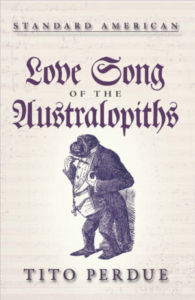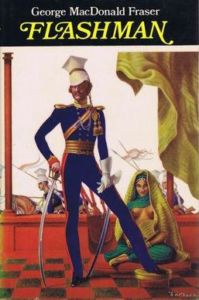The Gentleman Rogue: George MacDonald Fraser’s Flashman
I had different ideas about soldiering. — Flashman
In 1965, in the English town of Ashby in Leicestershire, a great literary find was made at a simple household furniture sale. Several oilskin packages containing the memoirs of an old soldier were found in a tea chest. A South African gentleman, nearest in kin to the soldier, took charge of the manuscript before passing it on to another ex-soldier named George Macdonald Fraser for editing.
None of this ever happened, but it was not a literary hoax so much as a good-natured literary conceit. The memoirs were “written” by literary creation Harry Flashman, a school bully who appears in Thomas Hughes’ 1857 novel Tom Brown’s Schooldays. George Macdonald Fraser rather brilliantly took the character and ran with it, creating Flashman, the most cowardly soldier ever to become a hero. The series ran to 12 novels, and the first, Flashman, begins with Harry’s disgrace.
After his drunken expulsion from one of England’s most prestigious public schools, and within the first 50 pages of Flashman, Harry has slept with and roughed up his father’s mistress, joined an army regiment recently returned from a long posting in India (so Flashman knows he won’t have to fight), placed bets on when a man would cry out while being flogged, been caught in bed with a fellow officer’s French mistress, cheated in the resultant duel by having his batman fail to load his opponent’s pistol, and cheated said batman out of a promised £10,000 for carrying out a deed that carries the death penalty.
Flashman is a moral monster, but even at this early stage it is apparent that the more cowardly and craven he is, the higher his star rises. The resultant scandal sees Flashman relocated to a regiment in Scotland to keep down rebellious workers — about which he has no qualms — and Harry lodges with a family which features four daughters. As soon as Flashman has billeted he has his way with one of them, Elspeth. Her description is just the first of many potential triggers that must have caught the attention of forensic historical sensitivity readers by now: “She was beautiful, fair-haired, blue-eyed, and pink-cheeked, and she alone smiled at me with the open, simple smile of the truly stupid.”
Flashman avoids a duel on condition he marries Elspeth. After the wedding he meets the commander of his regiment, Lord Cardigan, setting in motion a device Fraser uses throughout the Flashman novels: Flashman’s place in history. Lord Cardigan was (in)famous for leading the catastrophic Charge of the Light Brigade at the Battle of Balaclava and, further to being introduced to royalty (by the Duke of Wellington) in the form of the young Queen Victoria and Prince Albert at the end of Flashman, our anti-hero will go on in subsequent novels to meet Bismarck, Junior Congressman Abraham Lincoln, Lord Palmerston, Colonel Custer, Lord Elgin, John Brown (whom Flashman helps attack Harper’s Ferry), Wild Bill Hickock, Emperor Franz Josef, General Sir Robert Napier and, in a fictional double act, Sherlock Holmes. Fraser thus weaves his creation into the fabric of history.
Now Flashman is posted to India to escape his series of scandals, and his own singular version of soldiering begins, as does the prolific use of a word which, today, may not be uttered:
In India there was power — the power of the white man over the black — and power is a fine thing to have . . . You could live as you pleased, and lord it among the niggers . . .
From that page on, the word is used liberally and casually, with every servant simply being “my nigger.” I have looked online for evidence of the Flashman books being cancelled — to use the modern parlance — but can find nothing, which I suppose means no one in certain circles has read them yet. This is unsurprising, as the last place you would look for one of the new breed of Puritan would be a library.

You can buy Tito Perdue’s Love Song of the Australopiths here.
Flashman’s bedroom antics are beginning to hint that the novel might descend to the level of a bawdy Victorian romp, and so army life would be expected to put a dampener on Flashman’s ardor. Not a bit of it. He buys a native woman from a merchant and, when he tires of her, sells her on to a major in the artillery. But the military demand at least a level of attention, and Flashman must make himself useful. This is where Fraser employs a bit of an underhanded trick.
It is revealed that Flashman is something of a master linguist. He can pick up Indian and, later, Afghan languages and dialects within a couple of weeks. This hardly tallies with a cad who drank and bullied his way through school, but my working principle with this type of literary audacity is, the better the entertainment, the more inclined I am to pardon the entertainer, even for outrageous poetic license.
At any rate, Flashman singles himself out as an excellent emissary, conveying letters between the various military commanders and tribal chiefs positioned in and around Kabul, the action having shifted to the plains of Afghanistan. Things soon turn sour, however, and rebellious Afghan tribesmen attack the British garrison, which allows us to see two more aspects of Flashman which will recur throughout the series.
Flashy — as he calls himself — and his servant are attacked by Gilzais, and Flashman cuts and runs. His servant, witness to Flashman’s cowardice, is killed, and dies cursing Flashman. When Burnes, one of Flashman’s commanding officers, announces that he is to be court-martialed for failing to deliver a letter in person, Burnes is hacked to death by Gilzais. Those who have the goods on Flashman know where the bodies are buried. Unfortunately, they tend to be their own.
Also, Flashman retains an ability to see through humbug because he is acutely self-aware of his failings. In the case of what the English call “wrong ‘uns,” it takes one to know one. And speaking of wrong ‘uns, Flashman makes a deadly enemy in tribal chief Gul Shah, enraged because — as you may have guessed — Flashman sleeps with his woman. Gul Shah is a great Afghan Bond villain, and a scene in which Flashman is forced into a tug-of-war with a freakish dwarf over a pit of venomous snakes exquisitely shows Flashman’s shrieking, girlish cowardice.
With things too hot in Kabul, the British army agrees to withdraw to India. Of the withdrawal, Flashman has this to say: “Possibly there has been a greater shambles in the history of warfare than our withdrawal from Kabul; probably there has not.”
It’s a shame Flashman couldn’t have been in Kabul in August of 2022 when America withdrew.
Flashman gets a letter from Elspeth on the long march to India, who calls him “My Hector.” Flashman assumed she is cheating on him and has misdirected her letter until he realizes that it is a classical reference, which leads him to a candid appraisal of the British army of the time: “It was a common custom at the time, in the more romantic females, to see their soldier husbands and sweethearts as Greek heroes, instead of the whoremongering, drunken clowns most of them were.”
The description of the dying army and the slaughter of their native bearers is hellishly rendered, and Fraser is an excellent writer. There’s no excess, plenty of dark humor, and just the right pacing for a boy’s own adventure, the only difference being that boys usually read about authentic heroes, not chancers like Flashman. But the wily, cowardly soldier knows his place in the moral order: “Watching his tall figure moving away I felt a little chill touch me; being a ruffian, perhaps I know a good man when I see one better than most.”
The retreat to India ends up being more or less Flashman and his second, but before he leaves Afghanistan there is still time for two signature events in the Flashman novels. Firstly, Flashman is captured once more by Gul Shah, who promises exquisite torture administered by the woman Flashman seduced and who is now married to the sadistic chieftain. Again, the James Bond-like scenario of master villain and helpless hero plays out, but perhaps this is no surprise. Fraser was also a screenplay writer, and wrote the script for the Bond film Octopussy.
Flashman and Hudson, his second, get out of that bind, but once more there is a witness to Flashman’s cowardice. Hudson is not the type of man to defer to his master when that master is a base coward, and finally snaps when Flashman feigns illness to get out of fighting:
Get up! You’re a Queen’s officer, by God, an’ you’ll behave like one! You’re not ill, Mr Precious Flashman, you’re plain white-livered! That’s all your sickness! But you’ll get up an’ look like a man, even if you aren’t one.
In the resultant siege, Flashman passes out and wakes up with a broken leg in a hospital bed in Jalalabad, petrified that Hudson has told everything to the top brass. He asks his general whether Hudson is alive, to find to his relief that he is not. But the general takes the fact that Flashman’s first words on coming to consciousness were to ask whether his friend was still alive as the final seal on his nobility and heroism, rather than the fear of discovery which actually prompted it.
And so Flashman returns to England a hero, although to find his father is bankrupt and so he must live on an annuity from Elspeth’s father, doled out by his wife herself. He is the talk of society, and Queen Victoria decorates him. The novel ends with the supreme hypocrisy of Flashman, who had been in countless beds while away, feeling jealous that his wife may be having an affair, while meekly accepting money from her purse. The scourge of the Afghans can only say “much obliged.” But Flashman, whose cowardice always seems to look like heroism, ends on a stoical note:
What the devil, you have to make do as best you can; if the tide’s there, swim with it and catch on to whatever offers. You only go by once.
This is a dour time to be alive if literature is a part of your life, and there will be no more readable novels written in our lifetimes. Good literature operates on several levels, but escapism is certainly one of them, and I recommend the company of gentleman rogue Harry Flashman, if you have not already made his acquaintance.
Visit Mark Gullick’s blog: Mad, Bad, and Dangerous to Know.
* * *
Counter-Currents has extended special privileges to those who donate $120 or more per year.
- First, donor comments will appear immediately instead of waiting in a moderation queue. (People who abuse this privilege will lose it.)
- Second, donors will have immediate access to all Counter-Currents posts. Non-donors will find that one post a day, five posts a week will be behind a “Paywall” and will be available to the general public after 30 days.
- Third, Paywall members have the ability to edit their comments.
- Fourth, Paywall members can “commission” a yearly article from Counter-Currents. Just send a question that you’d like to have discussed to [email protected]. (Obviously, the topics must be suitable to Counter-Currents and its broader project, as well as the interests and expertise of our writers.)
To get full access to all content behind the paywall, sign up here:
Paywall Gift Subscriptions
 If you are already behind the paywall and want to share the benefits, Counter-Currents also offers paywall gift subscriptions. We need just five things from you:
If you are already behind the paywall and want to share the benefits, Counter-Currents also offers paywall gift subscriptions. We need just five things from you:
- your payment
- the recipient’s name
- the recipient’s email address
- your name
- your email address
To register, just fill out this form and we will walk you through the payment and registration process. There are a number of different payment options.



